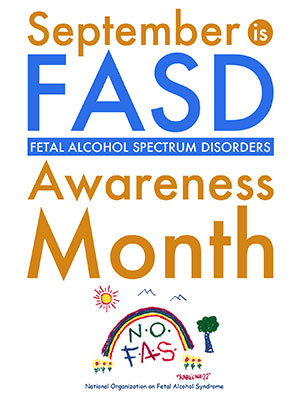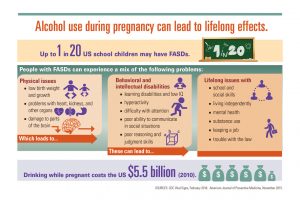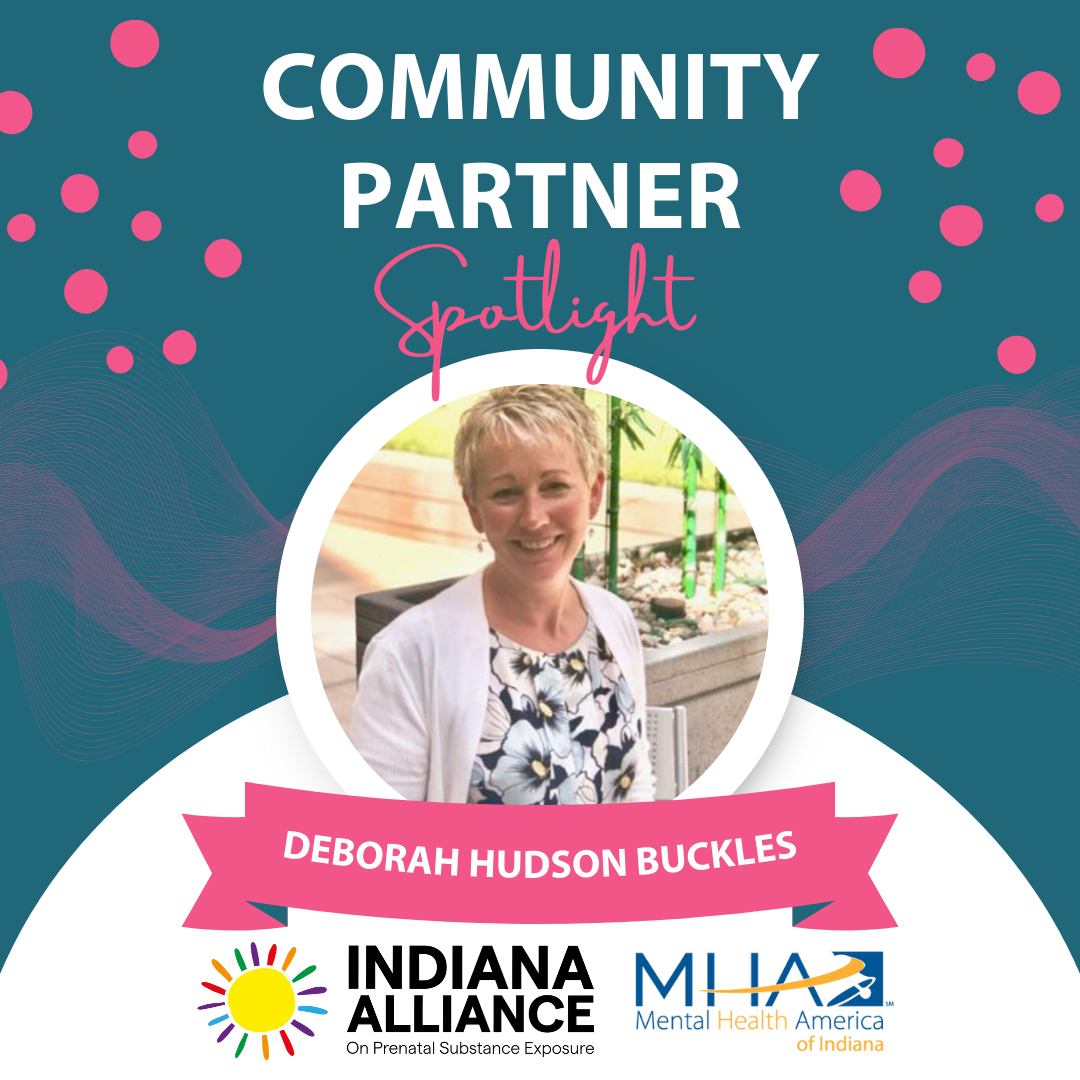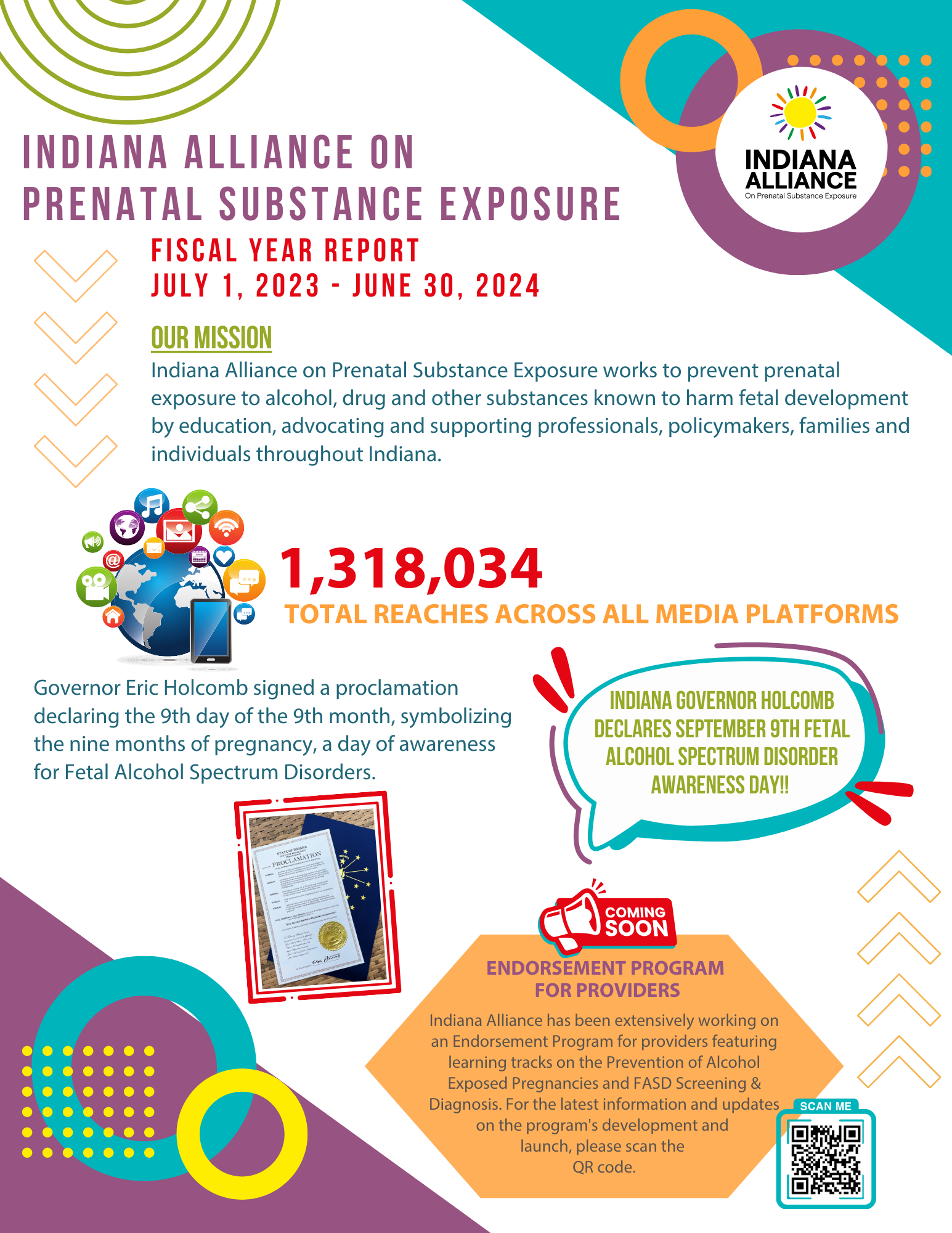
 September is Fetal Alcohol Spectrum Disorders Awareness Month. Even today, there are often mixed messages about drinking alcohol while pregnant. Many people believe think it’s not a big problem or are told that an occasional drink won’t harm their babies. The general public may not realize fetal alcohol spectrum disorders are so problematic and so prevalent because the majority of cases are never diagnosed.
September is Fetal Alcohol Spectrum Disorders Awareness Month. Even today, there are often mixed messages about drinking alcohol while pregnant. Many people believe think it’s not a big problem or are told that an occasional drink won’t harm their babies. The general public may not realize fetal alcohol spectrum disorders are so problematic and so prevalent because the majority of cases are never diagnosed.
Yet, the American Academy of Pediatrics estimates that fetal alcohol spectrum disorders may affect up to 4.8 percent of all children. The Centers for Disease Control and Prevention (CDC) estimates that more than 3 million US women are at risk of exposing their developing baby to alcohol. In fact:
the CDC encourages women of child-bearing age “not to drink at all if she is pregnant, trying to get pregnant or sexually active and not using birth control.”
Alcohol use during pregnancy can cause fetal alcohol spectrum disorders (FASDs), which are physical, behavioral, and intellectual disabilities that last a lifetime. About half of all US pregnancies are unplanned and, even if planned, most women do not know they are pregnant until they are 4-6 weeks into the pregnancy. This means a woman might be drinking and exposing her developing baby to alcohol without knowing it. Alcohol screening and counseling helps people who are drinking too much to drink less. It is recommended that women who are pregnant or might be pregnant not drink alcohol at all. FASDs do not occur if a developing baby is not exposed to alcohol before birth.
Alcohol can harm a developing baby
before a woman knows she is pregnant.
Why take the risk?
- Women who are pregnant or who might be pregnant should be aware that any level of alcohol use could harm their baby.
- All types of alcohol can be harmful, including all wine and beer.
- The baby’s brain, body, and organs are developing throughout pregnancy and can be affected by alcohol at any time.
- Drinking while pregnant can also increase the risk of miscarriage, stillbirth, prematurity, and sudden infant death syndrome (SIDS).
What we do know is that 100% of Fetal alcohol spectrum disorders are completely preventable. Women are encouraged to:
- Talk with their health care provider about their plans for pregnancy, their alcohol use, and ways to prevent pregnancy if they are not planning to get pregnant.
- Stop drinking alcohol if they are trying to get pregnant or could get pregnant.
- Ask their partner, family, and friends to support their choice not to drink during pregnancy or while trying to get pregnant.
- Ask their health care provider or another trusted person about resources for help if they cannot stop drinking on their own.
To learn more, visit the Centers for Disease Control & Prevention website.
Visit our Resource Directory for more information.










